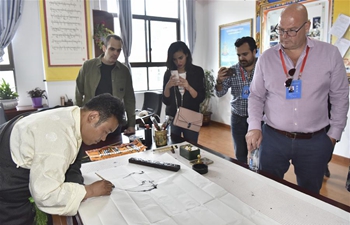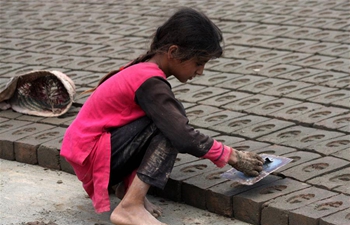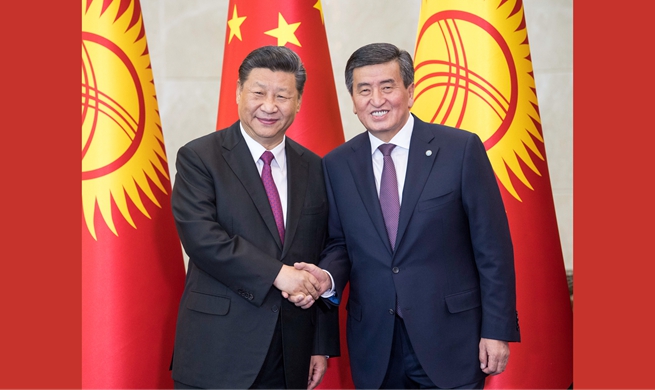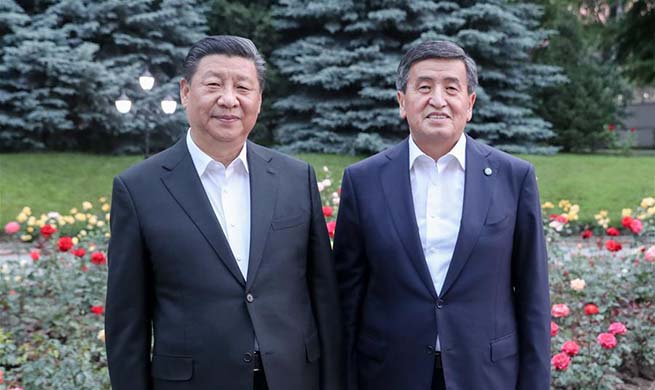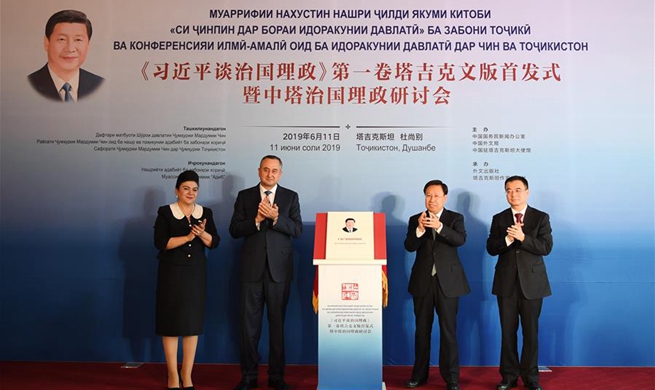UNITED NATIONS, June 13 (Xinhua) -- Head of a UN advisory group on Haiti said Thursday that the world body must address the root causes of political instability and worsening security situation.
Marc-Andre Blanchard, chair of the UN Economic and Social Council's Ad Hoc Advisory Group on Haiti, said the group is concerned about the deteriorating political, economic and social situation in Haiti after a trip to the country in late May.
"And everyone we met (in Haiti) agreed on one point: exclusion and economic inequalities are the root causes of the political instability and deteriorating security situation."
Blanchard, who is the Canadian ambassador to the United Nations, saw a direct link between violence and the fact that there is no perception of an economic future for many people. The hopelessness is driving people into criminality, he said.
And there is a deep institutional and governance and rule of law crisis that is born out of a worsening economic situation, a gridlocked political process, and a pervasive feeling of social exclusion and disenfranchisement, he said in an informal briefing to the Economic and Social Council.
Blanchard said the United Nations, which is in transition to a non-peacekeeping presence in Haiti, should look at the root causes of the problems in the country.
The mandate of the UN Mission for Justice Support in Haiti (MINUJUSTH) expires on Oct. 15 and the Security Council is considering replacing it with a special political mission (SPM).
"It seems obvious to us in the mission (trip) that there was one angle that was missing out of MINUJUSTH. The mistake that we don't want the UN to make one more time is that, while you focus on some aspects for security reasons, you forget what are the real root causes of all of this. We want to make sure that we don't address only some of the symptoms. But we address the root causes of the issues in Haiti," said Blanchard.
Although there should be a strong rule of law component in it, the SPM really needs to have the tools necessary to deal with the deep inequalities, social exclusion and the economic hardships.
The SPM should be equipped with robust expertise and skills that will enable it to foster inclusive and transformative economic development, focusing on job creation for young people in particular, and women; tax and duty collection by the authorities; tackling the scourge of corruption; and building sustainable infrastructure, said Blanchard.
He also asked for tools and resources for the SPM to tackle gang violence through a weapon and ammunition rendition program, constructive youth engagement, and training for the national police.
He noted that gang violence in Haiti is not pushed by the drug lords. There are indications that it was fueled by some political parties and some parts of the business community. "So you are dealing with a completely different (situation)."
In addition, the SPM needs to be able to support a much-needed and much-awaited inclusive national dialogue. As the Haitian government lacks capacity, the SPM can fill up this gap, said Blanchard.
The Ad Hoc Advisory Group on Haiti was created in 1999. The role of the group is to make recommendations on how to ensure that international assistance to Haiti is adequate, coherent, well-coordinated and effective.








